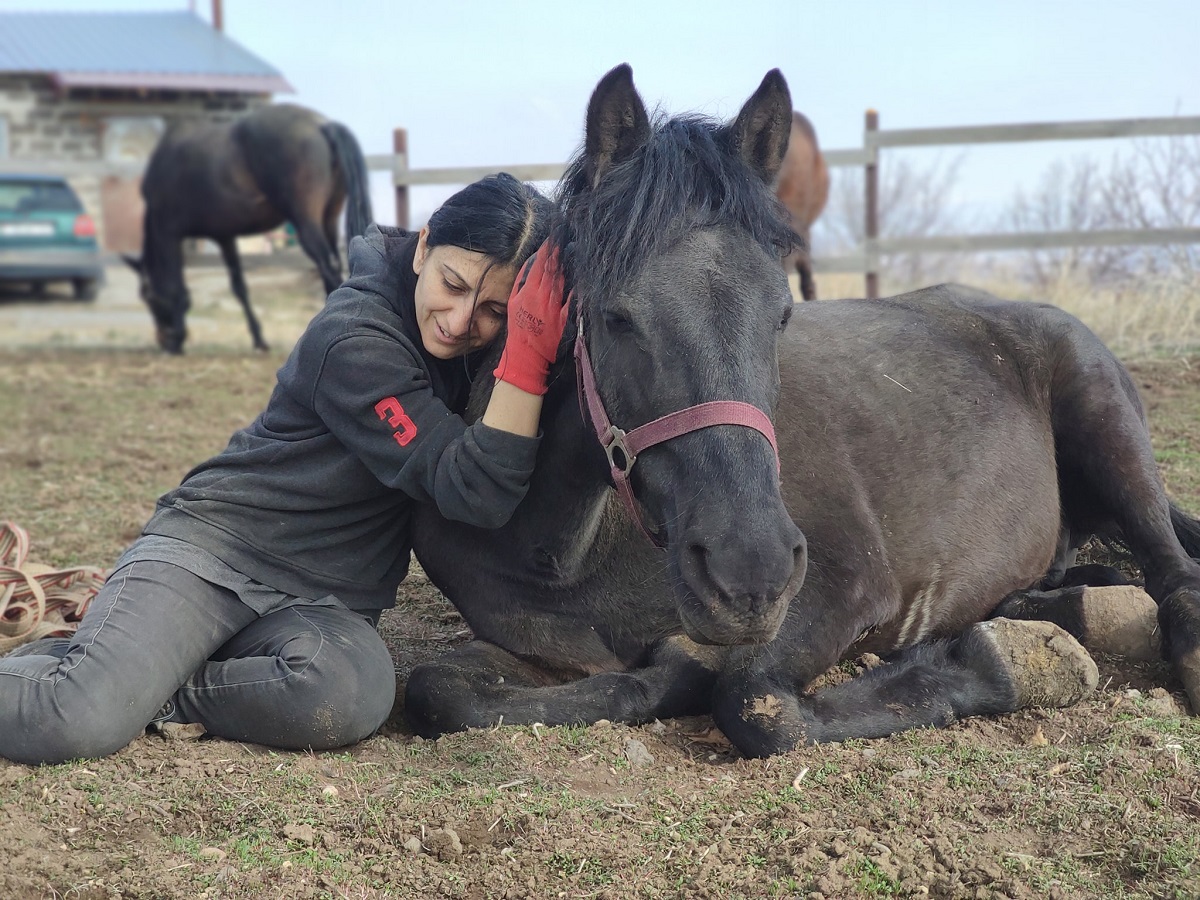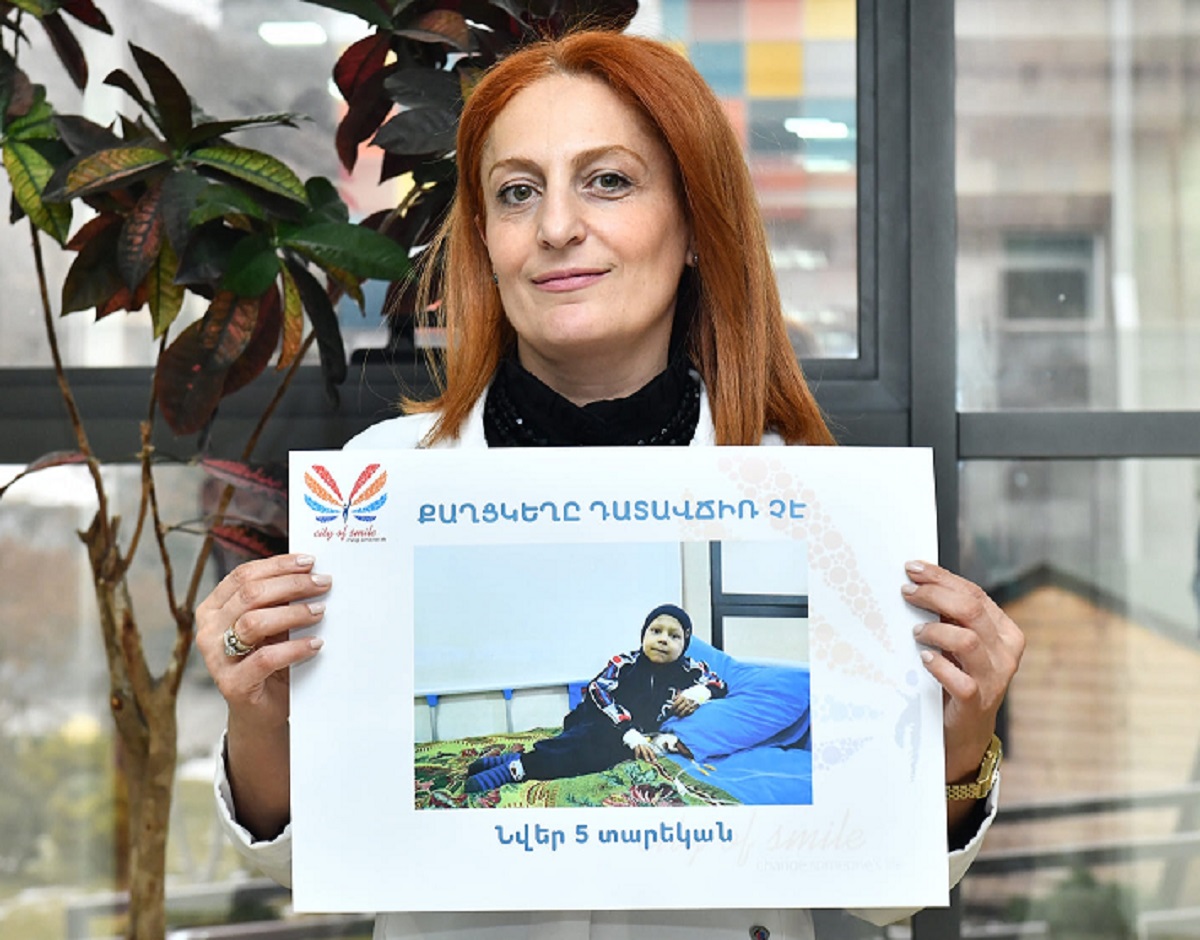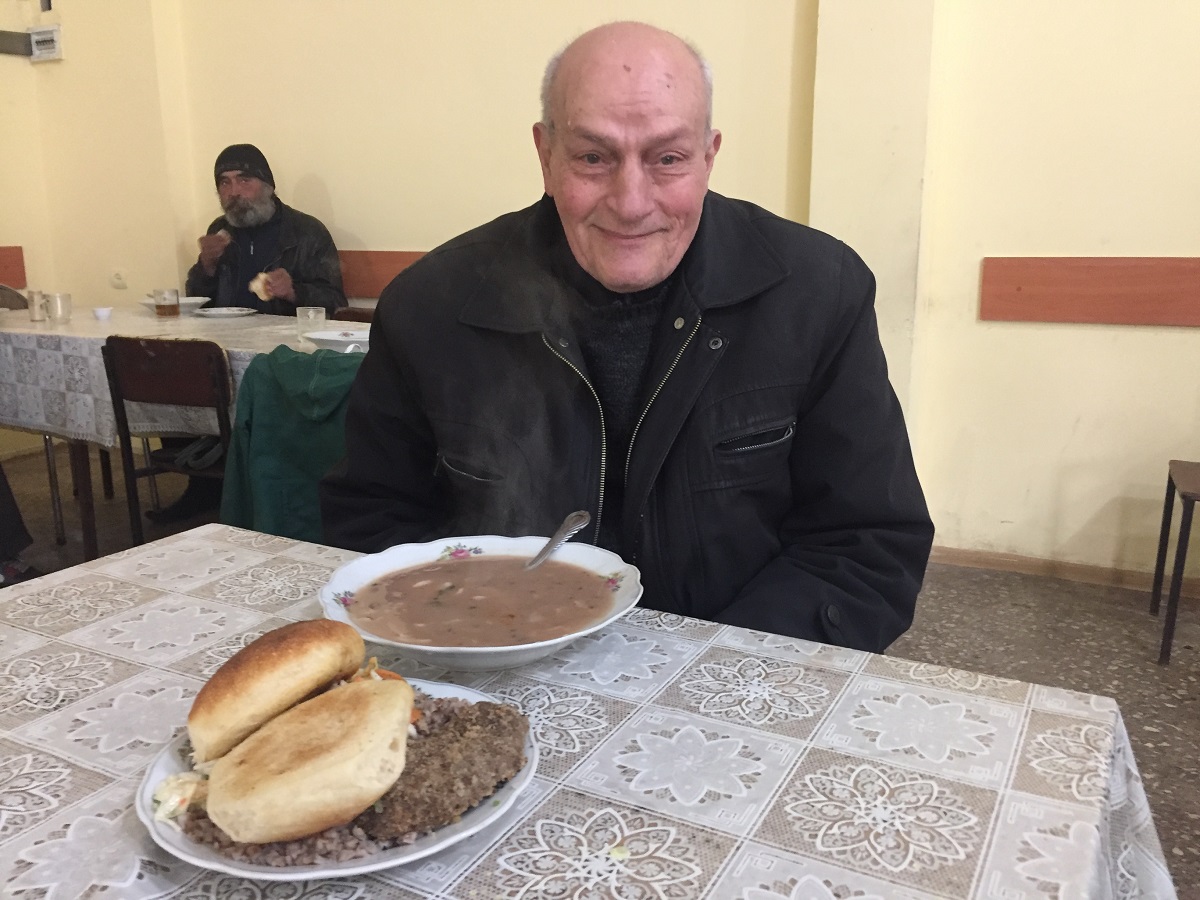"Preventing dementia": Armenia launches new program
Prevention of dementia in Armenia
The Ministry of Health of Armenia, together with several local NGOs, has developed a national strategy and action plan for the prevention of dementia.
According to the WHO definition, dementia is “a term used to describe several diseases that negatively affect memory, thinking, and the ability to perform everyday activities.” Dementia progresses over time and primarily affects the elderly. However, not all people develop dementia as they age.
Everything about the project – from the words of the implementers and the participants themselves.
- Electronic prescriptions in Armenia: How the ‘anti-self-medication project’ is being implemented
- Issues with personal assistants for disabled in Armenia
- Increase in drug trafficking in Armenia: Figures and comments
“Training is not only enjoyable but also beneficial”
In one of Yerevan’s schools, a group of women is doing exercises following the trainer’s instructions. First, they lean on the chairs in front of them and stretch their arms upward, then they try to maintain their balance for a while. Not everyone succeeds, but the trainer encourages them and suggests moving on to the next exercise.
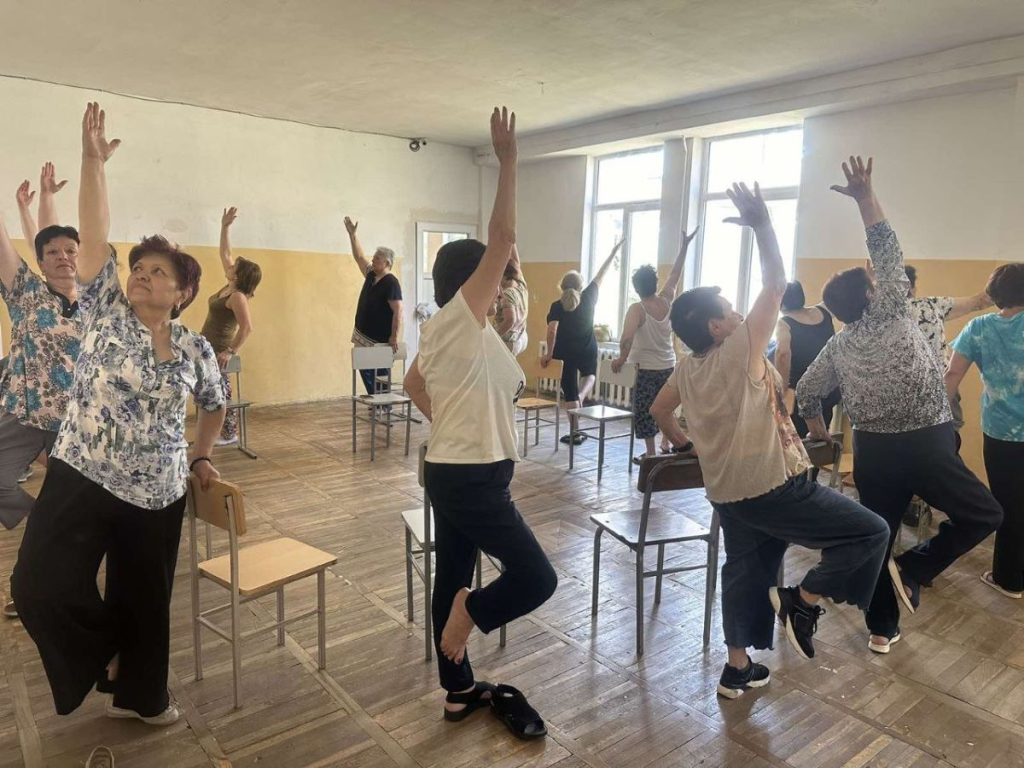
“I feel better after the classes. The training sessions are enjoyable and very beneficial. Our lives have changed. I even do these exercises at home. I have spine issues and consulted with doctors, who said it wouldn’t hurt. And I really do feel better now. I’ve become more active; the classes have given me strength and confidence,” says Shogik Muradyan.
She is 70 years old and worked for many years in the ministries of urban development and energy before retiring. For the past four months, Shogik has been attending physical activity and socialization classes twice a week. These classes are organized by the Ministry of Health in collaboration with NGOs interested in improving the quality of life for the elderly.
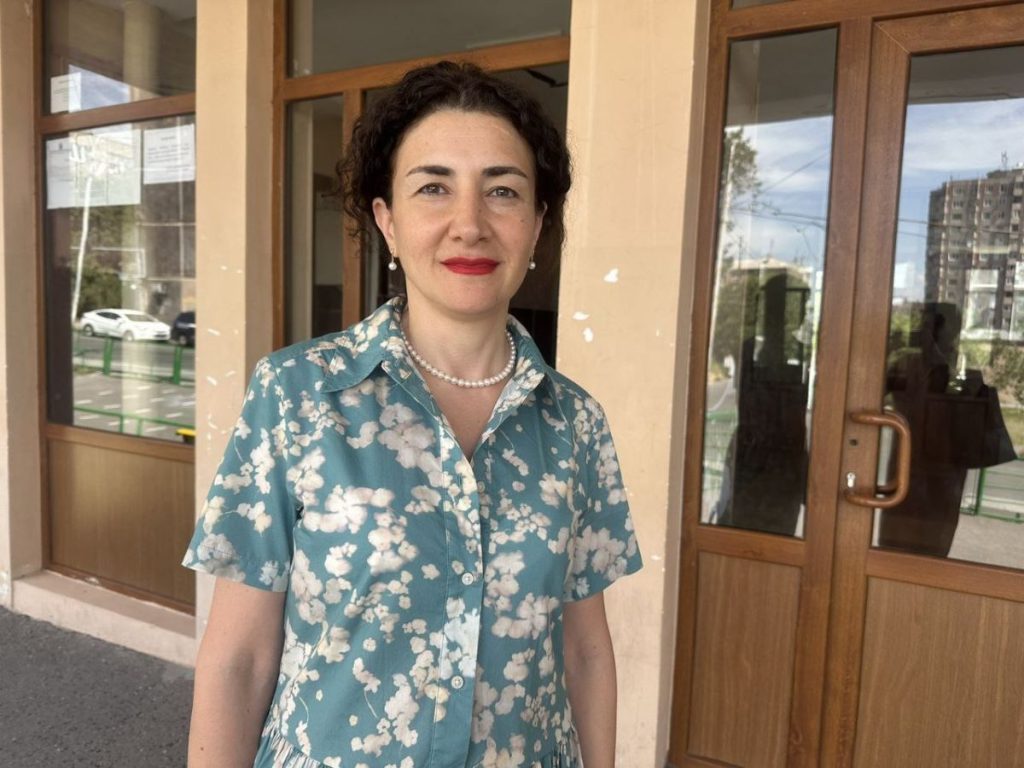
According to the Ministry of Health representative, Kristine Galstyan, several such programs are being implemented. One of them started experimentally last year and took place in 60 schools in Yerevan. Since April this year, free physical activity classes have been held twice a week in 10 schools in the capital. In four schools, there are also classes for memory stimulation and recovery.
She says the collaboration with schools is intentional. The project organizers considered societal stereotypes and decided to facilitate intergenerational communication in this way.
“There are groups of 25-30 people. In retirement, elderly people often lead a passive lifestyle, which leads to chronic diseases and depression. The program aims to prevent dementia and is part of the National Plan to Combat Dementia. One of its points is to create infrastructure in the country to help people maintain their cognitive abilities.
If we do not organize memory development classes, where will people go, and how will they train their memory? Memory deteriorates daily, and people’s conditions worsen. Another aspect is physical activity. It seems to focus on muscle activity, but it is scientifically proven that physical activity stimulates brain function,” explains Kristine Galstyan.
Alzheimer’s disease is the most common type of dementia
According to Ophelia Kamavosyan, the public relations officer for “Alzheimer’s Care Armenia,” when brain impairments occur, a person’s behavior changes. However, in Armenia, people seek specialist help only when elderly individuals begin to experience mental health issues.
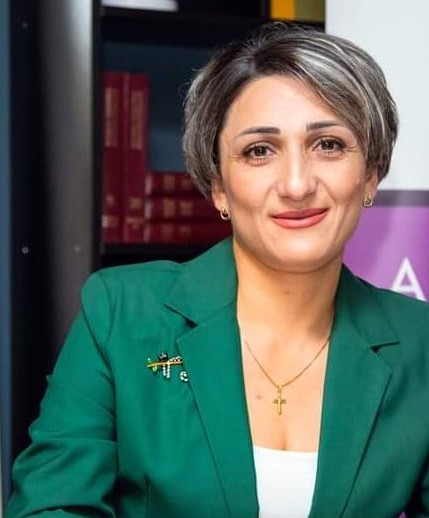
“They become suspicious, run away from home, and only then do people say, ‘Oh, dad is not well.’ But dad was unwell long before that. The process started at least seven years ago. This is a problem that could have been detected at least ten years ago. Alzheimer’s disease is one of the types of dementia, and the most common one. It accounts for 60-80% of dementia cases in elderly people. One manifestation of the disease is memory loss. People remember old stories but not the events of yesterday,” she explains.
In 2022, the public organization “Alzheimer’s Care Armenia” organized testing among 4,000 residents of Armenia over the age of forty using the Montreal Cognitive Assessment as part of the “Healthy Brain” program. The test allows for the assessment of spatial orientation, short-term memory, visual skills, auditory abilities, and vocabulary.
The results showed that 35.7% of participants had cognitive impairments. Experts consider this an alarming indicator, given that 27-30% of the population are elderly.
“No matter how many crosswords a person solves or how many TV shows they watch, it won’t help. The problem in our country is that our elderly do not know how to live for themselves; they have many concerns. We see elderly people abroad traveling the world with a cane, not considering their age a hindrance. But ours do not visit the doctor; instead, they take on all the household chores, make preserves. But a person must live for themselves too. The goal of our program is to change this situation.
Many believe that dementia is inevitable with age. This is not necessarily the case. The elderly should be physically and mentally healthy,” asserts Ophelia Kamavosyan.
Aging society
According to the Social Assistance Law, people in Armenia are considered elderly once they reach the age of 65. According to the population census conducted in 2022, out of 2,689,438 residents of Armenia, 460,165 are over the age of 65:
- 175,286 people aged 65-69,
- 129,318 people aged 70-74,
- 61,567 people aged 75-79,
- 61,398 people aged 80-84,
- 32,596 people aged 85 and older.
The elderly make up more than 12% of the country’s population. According to UN standards, a population is considered aging if the number of elderly people exceeds 7%.
Preserving the memory of the elderly
As part of the program to improve the quality of life for the elderly, in addition to physical and mental exercises, discussions are organized on healthy eating, proper breathing, and the prevention of common diseases.
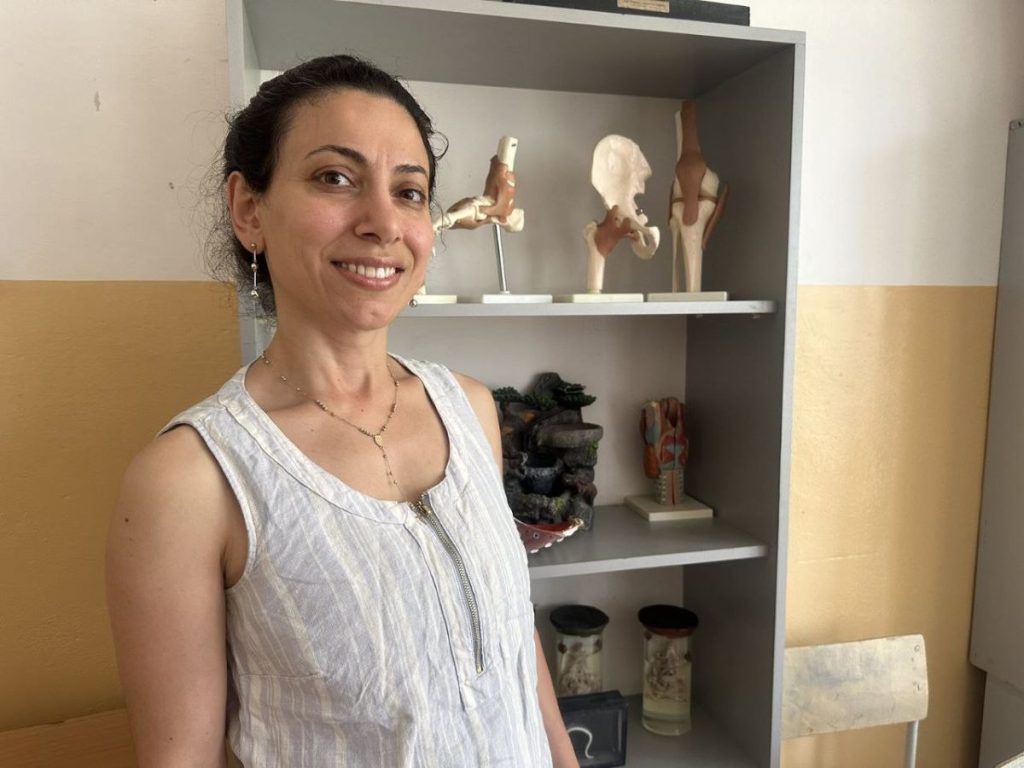
Program leader on elderly physical activity, lecturer at American University of Armenia, Svetlana Sargsyan, states:
“We need a healthy society. We must focus on preventing diseases rather than treating them. The problem is that in recent decades, sugar consumption has sharply increased. Excessive sugar intake greatly impacts dementia. The body cannot process the excess sugar, and it doesn’t nourish the brain. Our glands, the pituitary and pineal, suffer from this sugar overload, leading to calcification.
Just ten years ago, our elderly were fifty years old. This is the generation that witnessed the collapse of the Soviet Union, societal transformation, war, a devastating earthquake, migration, and then more wars and constant stress. All these factors create favorable conditions for the development of the disease.”
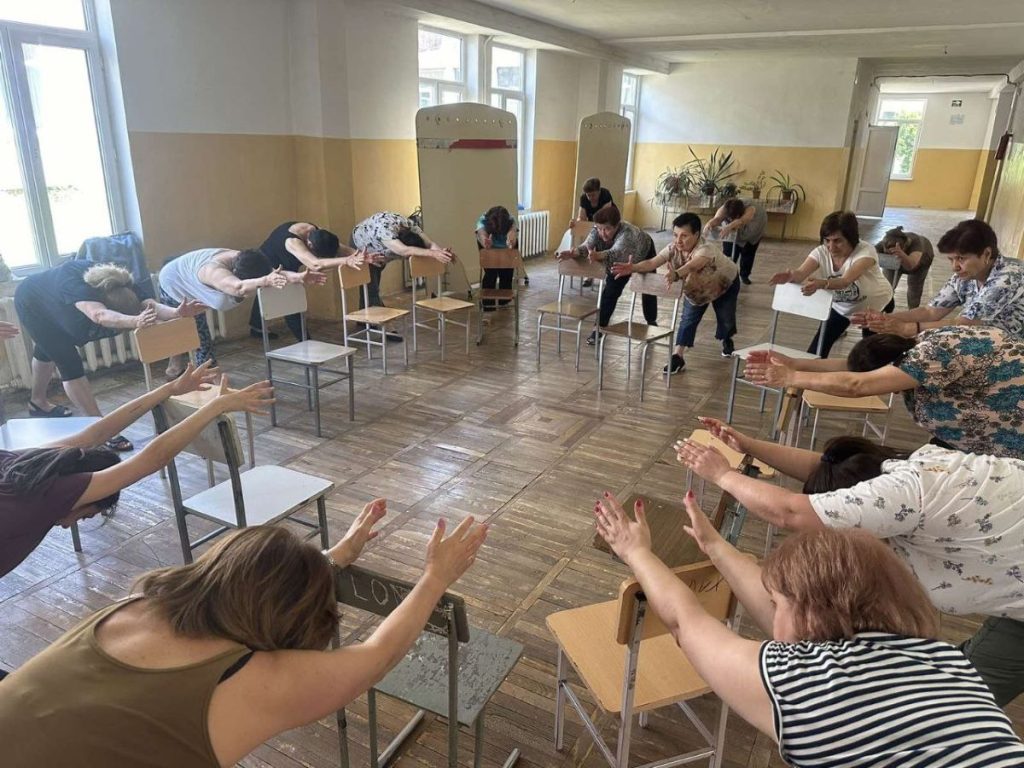
Physical exercises help improve memory
In the physical activity group, trainers assist elderly individuals in performing various exercises. One of the trainers, Anahit Musheghyan, explains that initially, there was resistance, but gradually, project participants became accustomed:
“We developed a program based on principles of kinesiology [the science of brain development through movement]. These are simple, understandable exercises aimed at improving joint mobility, breathing, and easing walking. They can be done regardless of health issues. We meet twice a week. I already feel they have begun to understand their bodies. And repeating physical exercises also contributes to improving memory.”
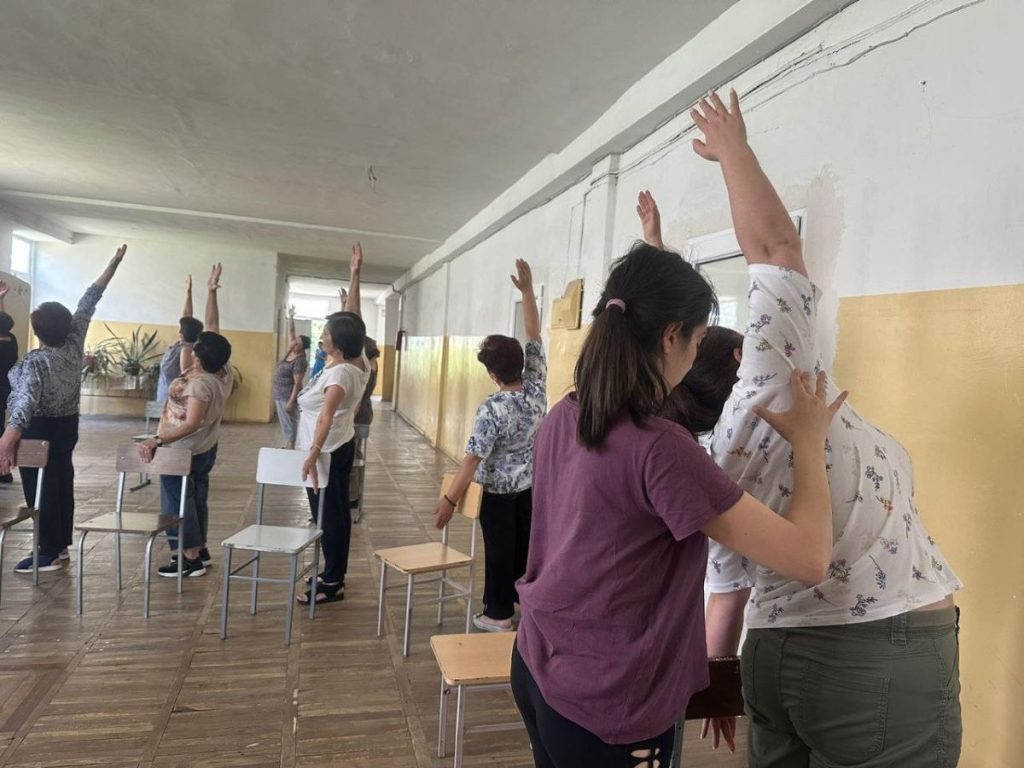
Heghine Safaryan is an engineer, 72 years old. She has been participating in the program since last year when it was still in its experimental phase.
“It felt like an inner requirement. I attended all the schools where the groups were opened. I really wanted the program to continue. The body needs to move, it requires it. If a person sits down, they will just keep sitting. At home, we move very little. Here, we gather, do exercises, and communicate, which is very important. I am grateful that they thought of us, of the elderly,” she says.
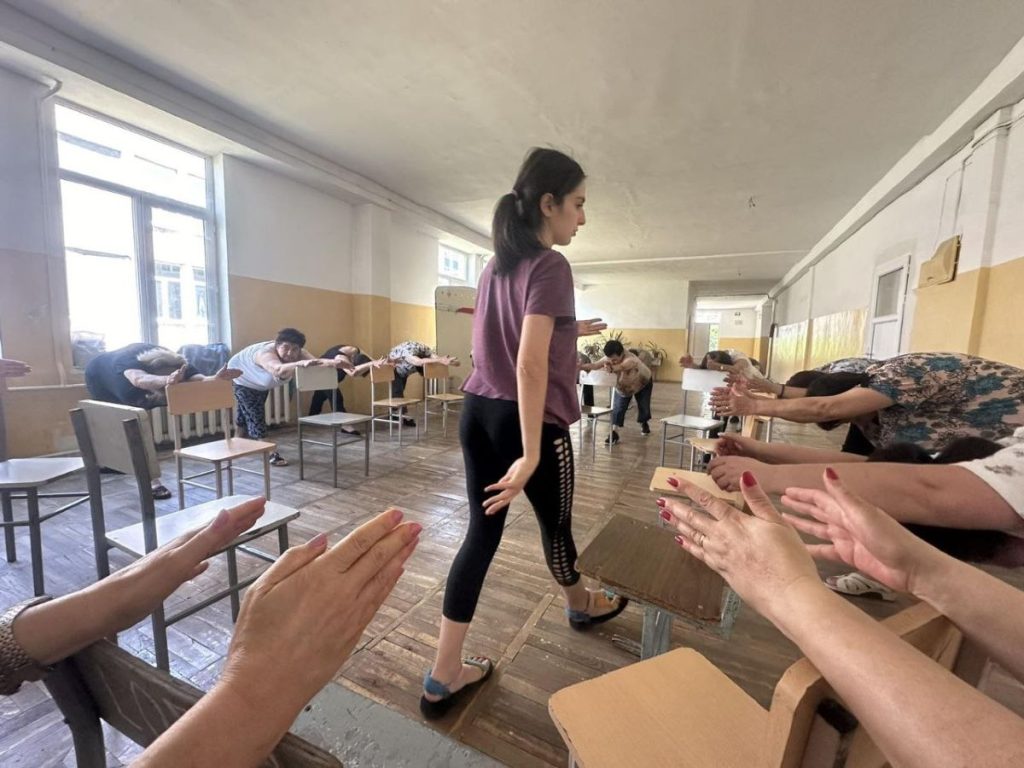
There’s ambiguous attitude towards the program
Organizers of the project note that both society and participants’ families evaluate it differently.
“It turns out that many are forced to attend sessions by their family members, simply understanding the importance of these measures for their health. They want their elderly relatives to be happy and healthy. But there’s another extreme when family members prohibit participation in the project, saying it’s shameful for them. It turns out there’s an opportunity, but society limits it,” says Ministry of Health representative Kristine Galstyan.
Svetlana Sargsyan, head of the physical part of the program, believes that the elderly possess life experience that they can pass on to the younger generation:
“We must cherish their memory. They have gone through so much. This program helps them regain confidence. For example, someone’s son lives somewhere in Europe, his daughter got married, and the person was left alone. Suppose he goes to see his son once a year and comes back. What happens next? Now he participates in this program, spends less time on Facebook, reading bad news and comments. He walks, has lost weight, socializes.
In my group, there’s a grandfather who comes from Avan to Nubarashen [districts of Yerevan]. It takes him two hours to get here, but he comes. The results showed after three months. He says, ‘You know, I used to take medicine for dizziness, but now I don’t.’ These people are trying to support their health with exercise.”
The project’s authors believe that there needs to be a change in attitude towards the elderly, they need to be valued, not allowed to isolate themselves, lose mobility, and faith in themselves.
“When morning comes, we already know what we’ll be doing. This means we have a goal, motivation. Because, you know, old age isn’t joyful,” says participant Shogik Muradyan, smiling.
Prevention of dementia in Armenia










